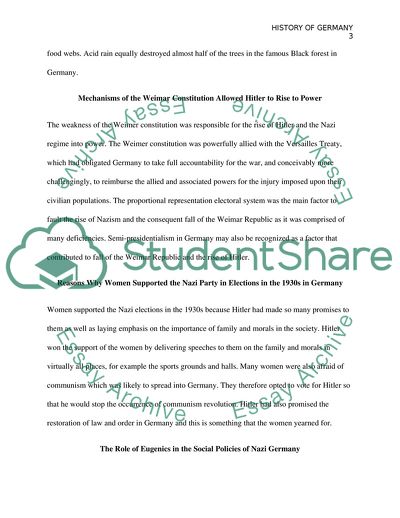Cite this document
(Why the Weimer Republic Could not Remain in Power after WWI Assignment Example | Topics and Well Written Essays - 2000 words, n.d.)
Why the Weimer Republic Could not Remain in Power after WWI Assignment Example | Topics and Well Written Essays - 2000 words. https://studentshare.org/history/1880294-history-of-germany-r
Why the Weimer Republic Could not Remain in Power after WWI Assignment Example | Topics and Well Written Essays - 2000 words. https://studentshare.org/history/1880294-history-of-germany-r
(Why the Weimer Republic Could Not Remain in Power After WWI Assignment Example | Topics and Well Written Essays - 2000 Words)
Why the Weimer Republic Could Not Remain in Power After WWI Assignment Example | Topics and Well Written Essays - 2000 Words. https://studentshare.org/history/1880294-history-of-germany-r.
Why the Weimer Republic Could Not Remain in Power After WWI Assignment Example | Topics and Well Written Essays - 2000 Words. https://studentshare.org/history/1880294-history-of-germany-r.
“Why the Weimer Republic Could Not Remain in Power After WWI Assignment Example | Topics and Well Written Essays - 2000 Words”. https://studentshare.org/history/1880294-history-of-germany-r.


